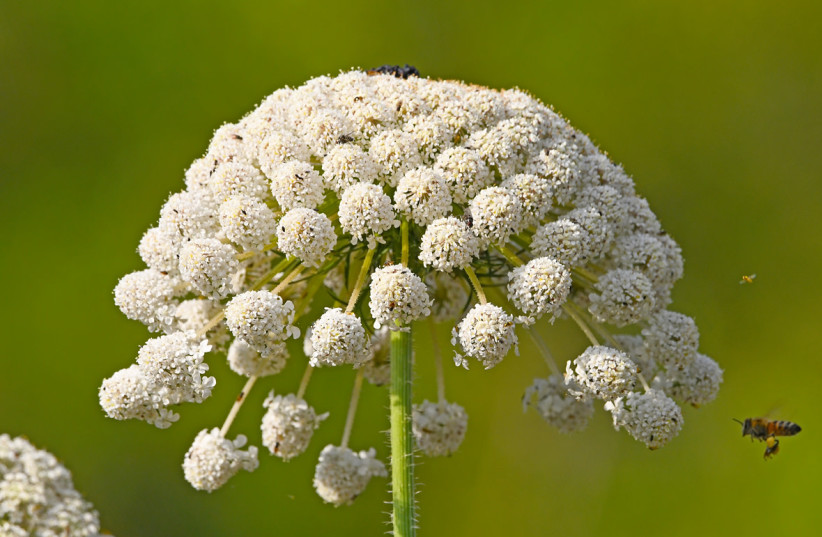In June, you don’t really need an umbrella anymore. It is the summertime in Israel. Nonetheless, umbrellas can still be seen outdoors in nature. This transpires in the Flora kingdom in a family of very special plants.
The Apiacea or Umbelliferae is a family of species that includes the wild carrot, the giant fennel, the toothpick weed and many others. This family or plants is very important to humans. As a matter of fact, most of the famous vegetables, such as carrots, cumin, coriander, celery and many more, come from the Apiacea family. Everyone has members of these important plants in his or her house.
The benefits do not stop at just our diet. Umbrella-shaped plants hold another advantage. They have a multitude of medicinal properties. The Chinese have used these medicinal effects in their traditional medicine for thousands of years. These plants are multi-purpose and used to treat muscle aches, blood problems, kidney stones, digestion issues and many other health concerns.
Some species are poisonous
As beneficial as this family of plants and its chemical substances can be, some of the species are poisonous, such as Hemlock. We should always be careful with these potent chemical traits.


In Israel, there are around 100 species of Apiacea. In the world, there are more than 3,700 species. When in blossom, they provide needed nutrition to a lot of insects, like butterflies bees and beetles. They grow almost everywhere in the county side and their big umbrella-shaped flowers are hard to miss.
The Environment and Climate Change portal is produced in cooperation with the Goldman Sonnenfeldt School of Sustainability and Climate Change at Ben-Gurion University of the Negev. The Jerusalem Post maintains all editorial decisions related to the content.
